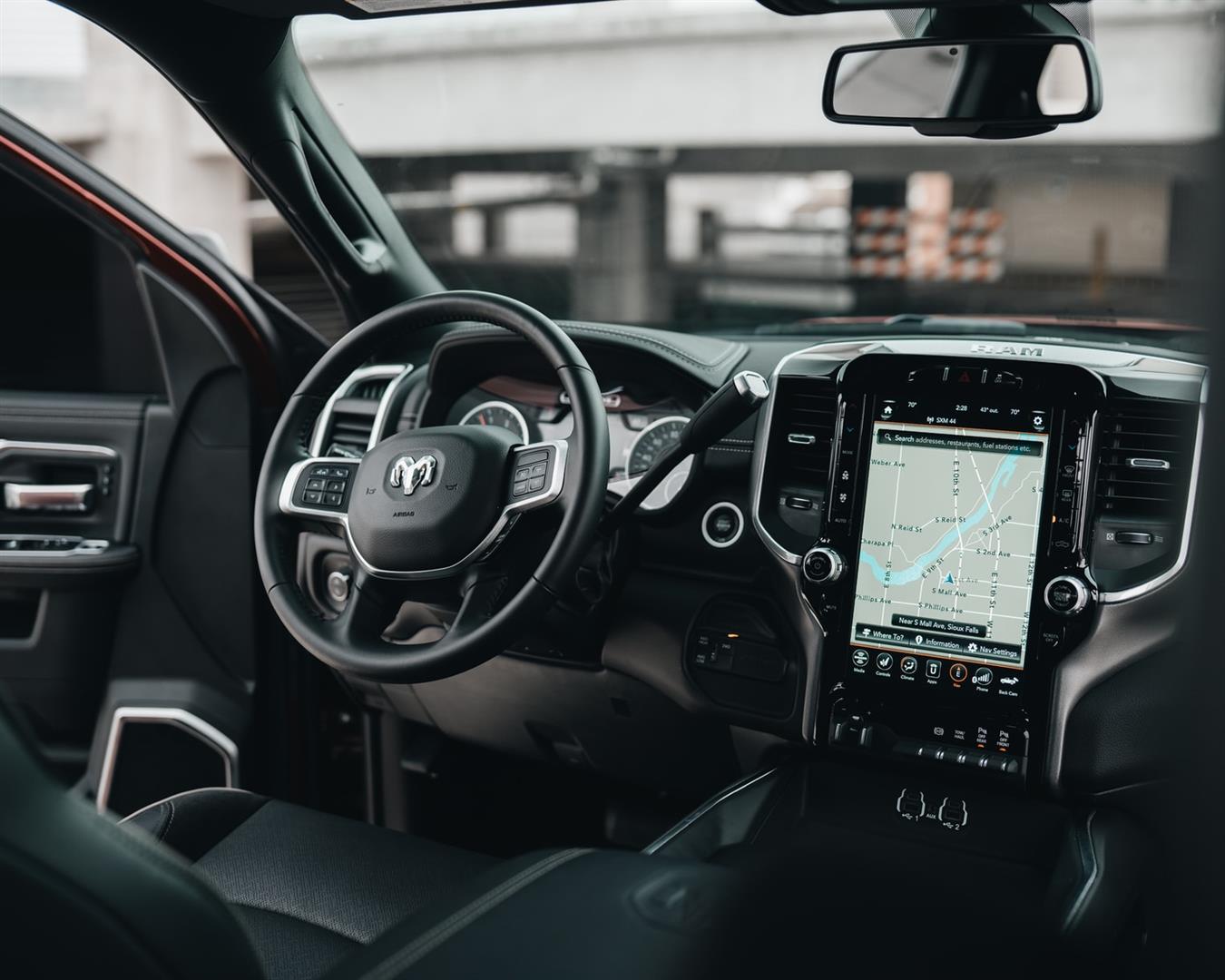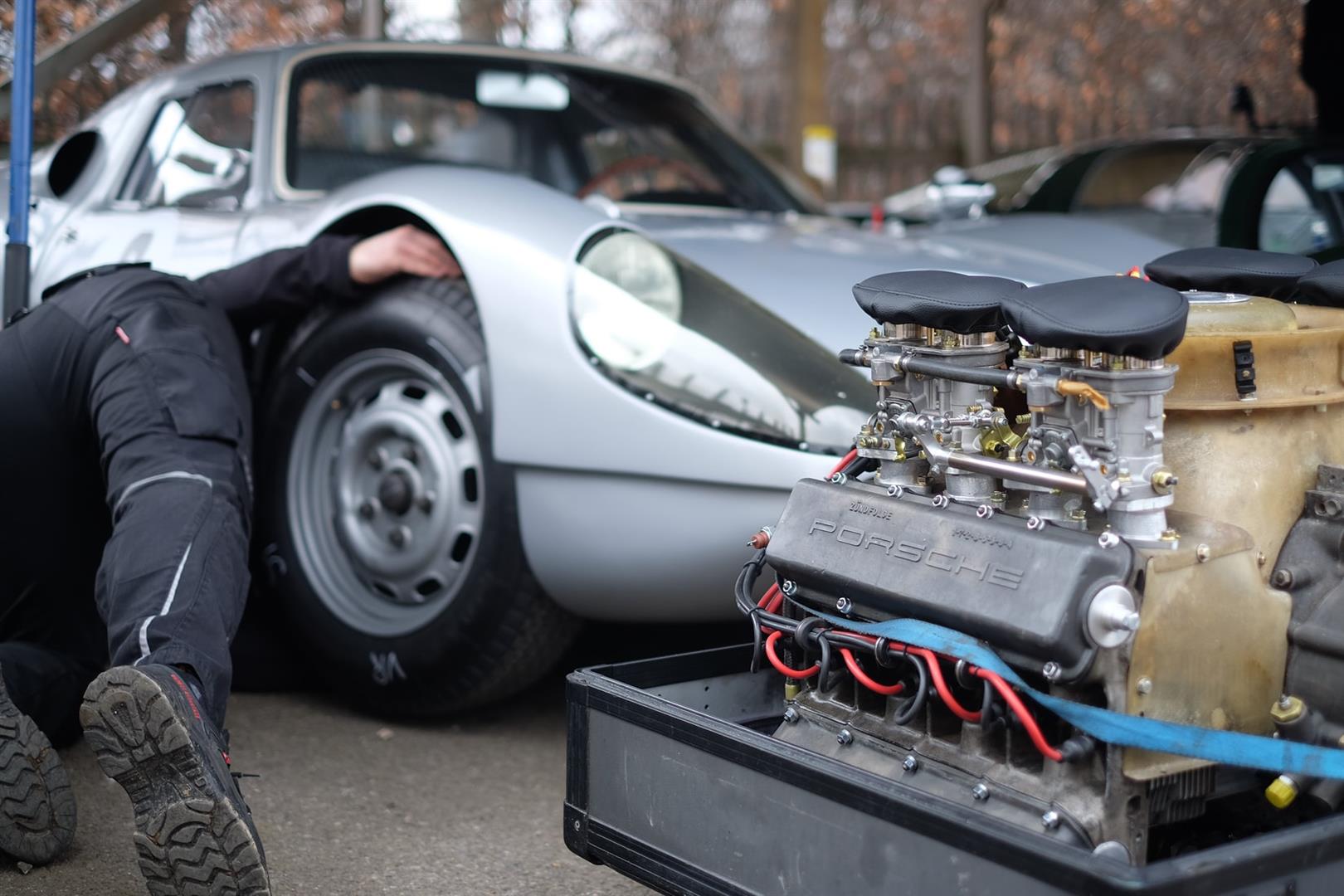Posted on 9/1/2021

Photo by Brock Wegner on Unsplash Often, we ignore the signs that appear on our vehicle dashboard without having in mind that it is essential to pay attention to them. One of these crucial signs is your vehicle's TPMS light! Picture this: you’re driving on the road when you see your TPMS light come on. It is not the kind of warning you should ever ignore. Your car is telling you to check your tire pressure because it senses a bad imbalance in the load one of your tires is carrying and wants to prevent you from having a blow-out on the highway! In this blog, we will teach you what your vehicle's TPMS does and what it means when the light comes on! What does it mean when your vehicle's TP ... read more
Posted on 7/31/2021

Photo by Oli Woodman on Unsplash As the colleges are reopening, you will now have to drive from home to school or take your vehicle with you to travel more comfortably every time you need to. But before you move your vehicle, ensure it is in good condition to be safe on the road, and prevent an accident. Below are some of the car care tips that you should consider to have your vehicle ready for back to school season. Check your tires: Make sure you have good tires to hop on the road! not having them in good conditions can cause wear and tear. You want to ensure they are making good contact with the road, as they are the feet of your car! Check your seatbelt, and wear it! : We don't only use seatbelts because it is required by law, but because it saves ... read more
Posted on 7/23/2021
Of all the warning lights on your vehicle's instrument panel, there's one that demands your attention. And that's the brake warning light. Common sense will tell you that if you can't stop, you are endangering yourself and others. Brake warning lights are there to warn you that something is wrong with this vital safety system. There are several reasons a brake light will come on, but if yours does, get it to your NAPA AutoCare Center and have it checked out right away. Here are some possibilities of what's going on when you see that brake warning light. Low brake fluid—A sensor has detected that the brake fluid level is low. The technician can determine if you need more fluid. The technician can also determine if there's a leak in your brake system. Low brake fluid could also be a sign of worn brakes pads. An inspection can reveal brake problems. Just topping off the brake fluid can leave critical problems unad ... read more
Posted on 7/16/2021
Clean air quality is something that helps all of us thrive here on Planet Earth. And considering that motor vehicles are a contributor to air pollution, emissions tests in the U.S. and Canada are in place to keep vehicles from needlessly spewing dangerous gases into the air. While laws vary from place to place, the goal of an emissions test is the same: to make sure toxic gases are kept at a minimum. They often measure nitrogen oxide, carbon monoxide, carbon dioxide, oxygen, and hydrocarbons. Fail the test, and you may not be allowed to drive that vehicle on the road until it's rectified. Keeping your vehicle maintained is the best way to make sure you can pass an emissions test. Here are a few things that could be wrong with your vehicle that might result in it failing that emissions test. The mixture of fuel and air in your engine is heavy on the fuel. That can cause issues with the catalytic converter that is intended to keep emissions to a minim ... read more
Posted on 6/29/2021
If you feel a slight shudder or vibration coming through your brake pedal when you stop, it could be a sign you need some brake work done. That gets you thinking, how long should my brakes last anyway? It depends on a lot of factors. But for discussion's sake, let's talk about the components that wear out most often, the pads and rotors. One factor is how you drive. If you drive on highways a lot, you won't use your brakes as much as, say, someone who lives in the city and is in the middle of a lot of stop-and-go traffic. Do you drive a lot in the mountains? Do you tow a trailer or haul heavy loads? Those driving habits will all wear down your pads and rotors more quickly than someone who doesn't put that extra friction on their brake components. Do you love jackrabbit starts and squealing stops? That will wear out your brakes more quickly than smoother driving habits. Do you drive a hybrid or electric vehicle? In that case, you may have regenerative brakes that he ... read more
Posted on 6/29/2021
The Check Engine Light strikes fear into the hearts of some and is totally ignored by just as many. Just what it means is a mystery to most of us. First, if your check engine light is flashing, that means that something is wrong that could cause severe damage to the catalytic converter or other components. Get that taken care of right away. If your check engine light is flashing, you shouldn’t drive at highway speeds, tow or haul heavy loads. Take it easy all the way to the service center. If the light is glowing steadily, you should keep an eye on it for a day or two. If the light doesn’t go off, schedule an appointment with your service advisor to get it checked out. Some more information on how the Check Engine Light works may be informative. Most of your engine functions are controlled by a computer, not surprisingly, called an engine control computer. The computer can adjust many engine parameters for environmental conditions, engine condition and even the way you d ... read more
Posted on 6/29/2021
A driver recently noticed that her garage had begun to smell like gasoline after she parked her vehicle inside. Her Check Engine light had also just come on. This was something she'd never experienced before. So, she called up her NAPA Service Advisor and asked what was causing it. The answer, of course, is that many things can cause a sitting vehicle to smell like gasoline fumes. But it can sometimes be tricky to track down the source, so here are a few things you can look for that may help your NAPA AutoCare Center technician pinpoint the origin of the odor. Gasoline odors can be caused by a leak somewhere in the fuel system, meaning gasoline can be dripping out. Some possibilities? It could be a break in a fuel line. You could have a leaky fuel-injection line or injector. There's a vent for your fuel tank that may also leak. The fuel filler neck can wear out and fail. One thing you should look for is to see if there are any puddles of gasoline on the floor of your garage ... read more
Posted on 6/29/2021
It happens – a part on your vehicle breaks or just wears out. The replacement part is very important. You want it to last and perform like new. That’s why your NAPA AutoCare Center uses quality NAPA replacement parts. The parts we install on your vehicle will meet or exceed the specifications of the original parts. Let’s break that down. “Meets” means that the new parts will perform the same as the parts they're replacing. “Or exceeds” means that sometimes, the replacement parts improve on the original part. A replacement part choice may be tailored to your preferences. Let’s take brake pads for example. Perhaps you value quiet brakes. Someone else prefers high-performance stopping power, or minimal brake dust accumulating on their wheels. Your service advisor can help you select brake pads that best meet your needs. There are hundreds of thousands of auto parts needed to service all the vehicles on the road – including yours ... read more
Posted on 6/29/2021
Question My name is David. For the last year and a half, I’ve had some battery problems. I had trouble starting my car, so I bought a new battery. At first everything was fine, then about six months later I had problems starting my car again, so I got a new battery. Again, everything was fine for another five or six months then I had trouble starting my car again. I went to get another battery and the parts guy said why do you need another battery, weren’t you in a few months ago? So, he tested my battery and it was OK. Apparently, I’ve been replacing good batteries. What’s wrong with my car? Answer Look, we can’t fault David for not knowing what’s wrong with his car – he just didn’t have enough information. And frankly, neither do I. Let’s talk about where our friend went wrong and what he could have done. First, he was right to suspect his battery. But if he had asked to have his battery tested when he first went to the auto p ... read more
Posted on 6/29/2021
Basically, the power brake system helps you provide braking power so that you don't have to do all the work with your brake pedal. The brakes themselves are applied at the wheel using hydraulic pressure. When we step on the brake pedal, we create pressure in the power booster that's multiplied by vacuum from the engine. The resulting pressure pushes brake fluid through the master cylinder into tubes and hoses that run to the brake at each wheel. When there's a problem, it's usually a fluid leak somewhere along the line. It could be at a fitting or a hose, or even an internal leak in the master cylinder. A leak gives the pressurized fluid somewhere to go other than to the brakes, so stopping power is hurt. Lose enough fluid and you can't stop at all. Of course that's extremely dangerous. If you notice any decrease in stopping power or if your pedal seems mushy, you could have a problem. There are some preventive maintenance items for the power brake system tha ... read more